Ridley Road has reignited the debate about who gets to play a Jew – a Jew weighs in
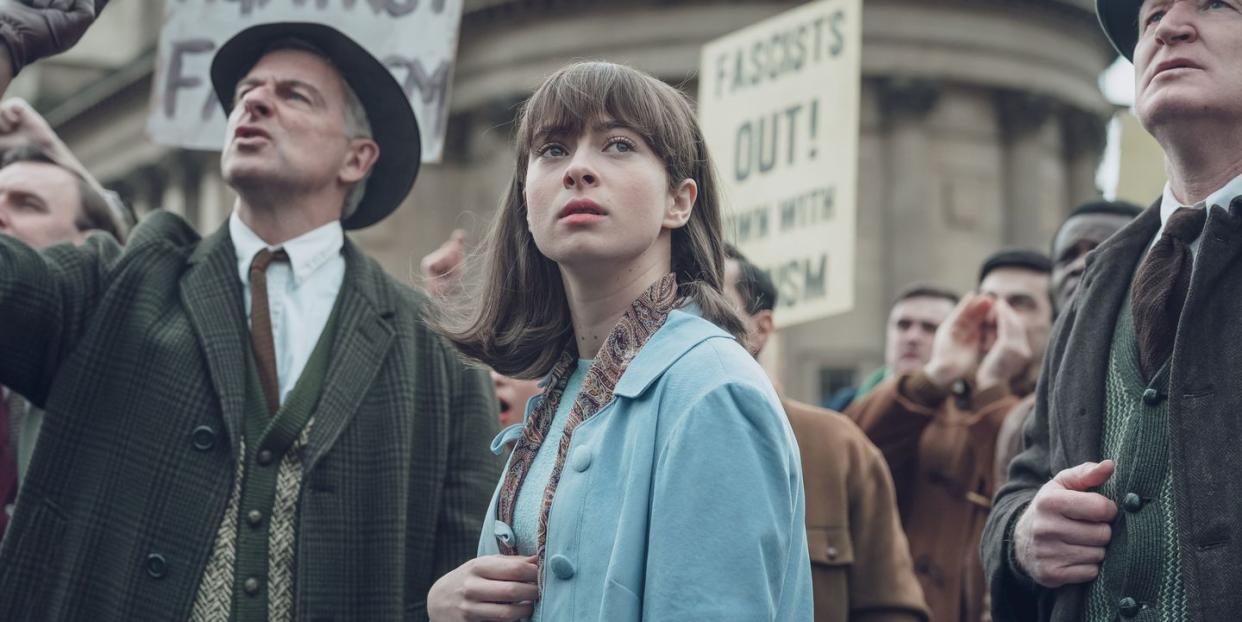
Halfway through the second episode of Ridley Road, the BBC's new drama about the true story of the antifascist organisation The 62 Group, a thought suddenly dawned on me: "I wonder if Agnes O'Casey is Jewish."
On the face of it, it shouldn't matter, because O'Casey is an actor, and it is an actor's job to pretend. O'Casey is pretending to be a Manchester-born Jewish hairdresser named Vivien who goes to London to search for her beau Jack (Tom Varey), but winds up part of the fight against fascism.
However, more and more we – as an audience, as critics – are looking for authenticity from our performers, craving a touchstone of 'lived experience' to validate everything from works of fiction to criticism.
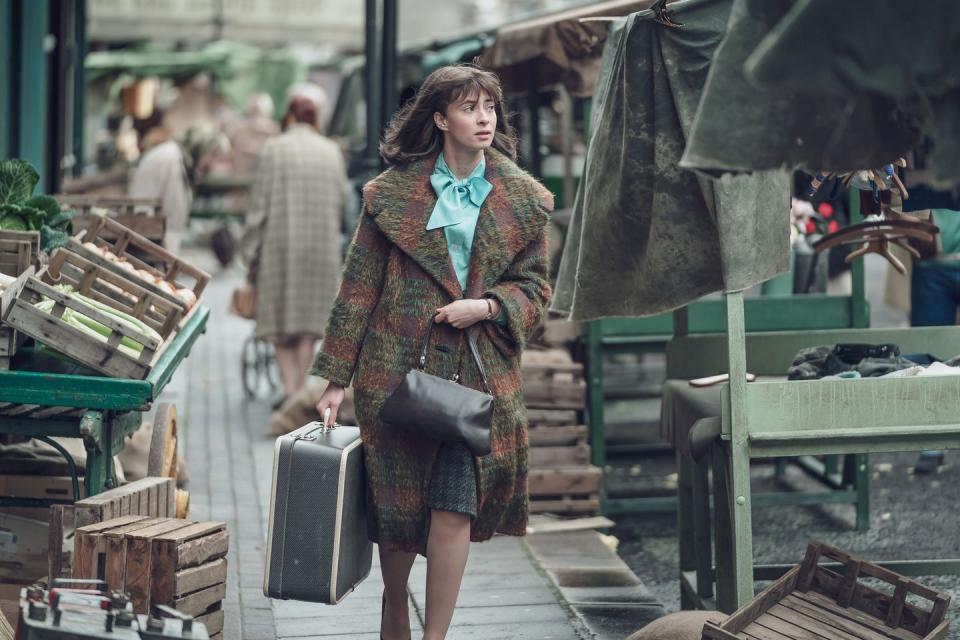
Discussing Ridley Road, it sounds a bit like an oxymoron on its surface – after all, acting is, at its core, playing pretend. Who then gets to decide what level of pretending is out of bounds?
We have boundaries now that seem like they should have always been obvious. Blackface and yellowface, in which white actors use make-up and racist affectations to mimic (usually for comedic or disparaging purposes) Black and Asian people as caricatures are clearly not merely offensive but deeply racist.
Of course, there are still grey areas – even within these seemingly clear cut no-gos. Awkwafina has come under fire for using a 'blaccent' and In The Heights was criticised for colourism within its entire Latinx cast, for example.

There's the conversation, too, around straight actors playing queer roles (though cis actors playing trans roles has waned in recent years, the trans community is still sorely underrepresented authentically in Hollywood). In another category still of somehow inarticulably sketchy, is gentiles playing Jews. Sometimes. Maybe?
So why did I want to know if O'Casey was Jewish?
Ridley Road makes her not only the protagonist but also the lens through which the audience uncovers the true and staggering levels of antisemitism and racism still rampant even after the defeat of the Nazis. Vivien's Jewishness is integral not only to who she is but to the story.
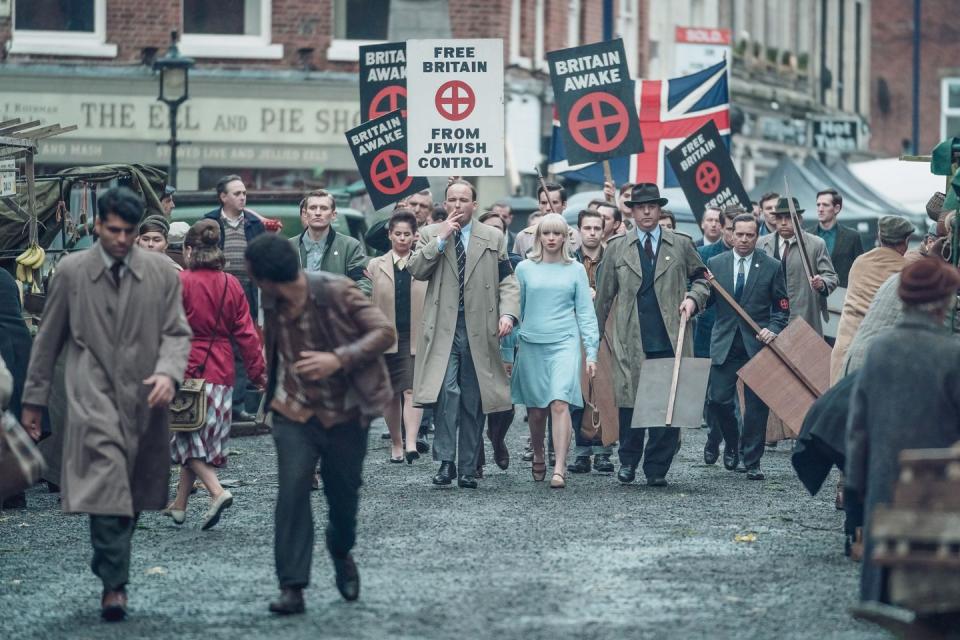
Some might argue that O'Casey's casting is "Jewface" – a term that even itself while striving to highlight a perplexing issue in Hollywood, manages to be problematic. Other examples include Rachel Brosnahan in The Marvelous Mrs Maisel, Felicity Jones playing Ruth Bader Ginsburg in On the Basis of Sex, and Ben Kingsley in a lot of stuff (he's also played Nazis, so make of that what you will).
The term, therefore, begs the question: what does a Jewish face look like? I don't really know.
This very theme is brought up, albeit briefly, in Ridley Road itself. When Vivien finally finds Jack, he reveals he goes by the name Peter Fox and works for Soly (Eddie Marsan, also not Jewish) and has infiltrated London's fascist party led by real-life avowed Nazi, Colin Jordan (Rory Kinnear). He feeds Soly information that helps stop attacks on Jewish institutions.
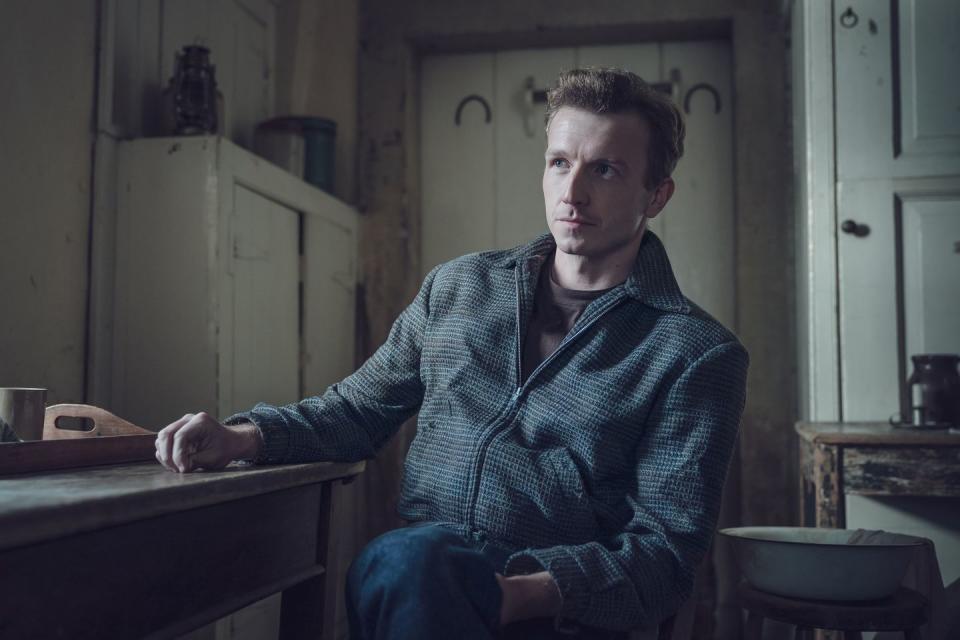
Peter/Jack says to Vivien "I can pass" – and what he means is pass as a gentile, but in this case, it's a specific kind of white gentile that Peter/Jack is pretending to be. Passing is a loaded term, too, for Jewish folks to use.
If mainstream culture is to be believed, a Jewish person looks a certain way – big nose, big hair, big voice (if you're a woman you're also overbearing or a nag). The reality is that Jews look as diverse as the human race is, and the term not only refuses to acknowledge that diversity but furthermore leans into what we call Ashkenormativity – ie the foregrounding of white, eastern European Jews. Which is what I am.
Unless you wear obvious signifiers of Jewishness (a yarmulke or Magen David) it's very, very easy to pass. But not always. I once got a message on a dating app whose opening line read: you look Jewish. (I won't write what he said next, but I remember it.)
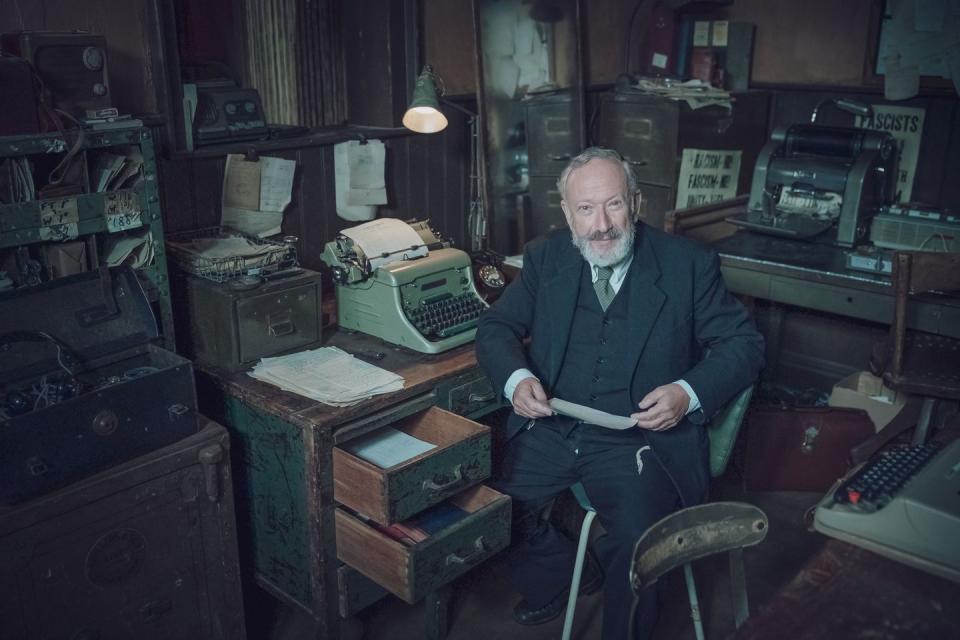
Could I have "passed" in Colin Jordan's Neo-Nazi gang? I don't know.
The inherent problem with the term "Jewface" is its reliance on stereotypes to define what a Jewish person looks like. These visual signifiers of Jewishness have been used since almost literally the beginning of the modern era.
But it is the non-visual antisemitic signifiers that are just as, if not more, terrifying: that Jews control the media, are money-grubbing and duplicitous, that our allegiance is first and foremost to Jewishness (and in most cases, Israel) rather than our native countries. These are themes actively used today to spread hate and blame Jews, again, for the ills of the world.
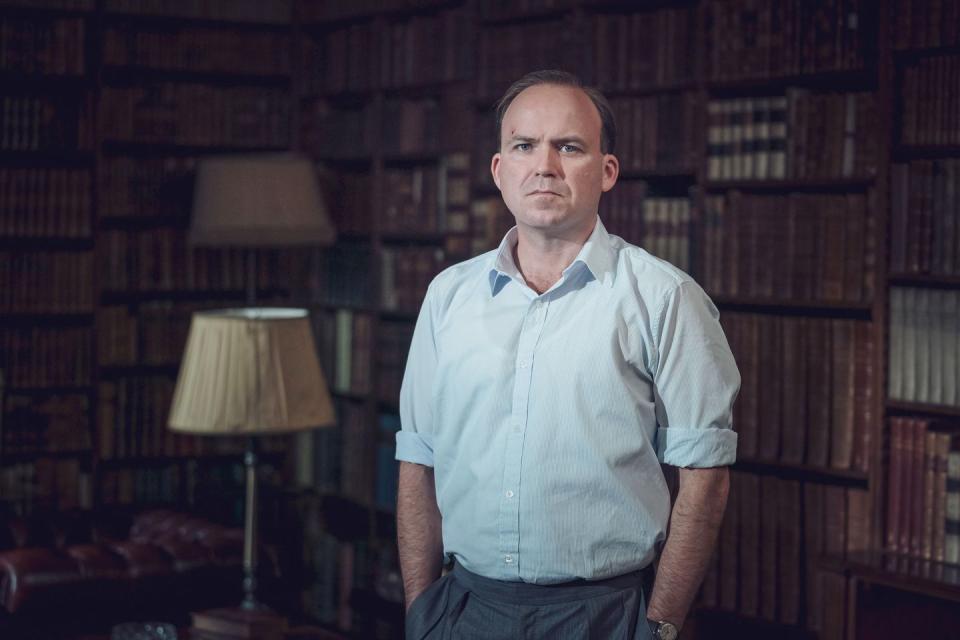
This imaginary conspiracy is what Ridley Road's Colin Jordan is trying to stop with his band of followers. One such is a local neo-Nazi community organiser, who leads neighbourhood meetings. In one, he bemoans that his local shop has been replaced by a store owned by a man whose surname is Cohen. Cue audience gasp (literally).
It is this fear of being replaced that fuels antisemitism – and, indeed, xenophobia in all its forms (the idea that the immigrants are coming to take your jobs, your homes, your partners). As a non-Brit, I had no idea Tesco was founded by a Jewish family (which makes the paltry 'Jewish' foods section at Passover even more ironic).
For antisemites, it is an omnipresent fear that 'the Jew' can walk among them, unidentified. Vivien and Jack prove this point doubly – their ability to pass makes them the 'worst' kind of Jew.
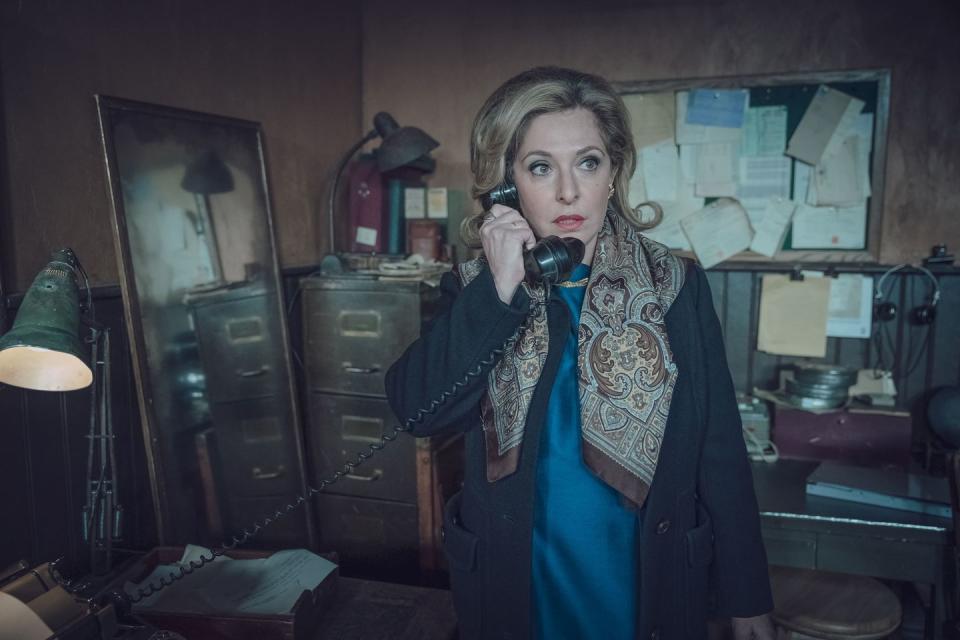
This underlying theme is made uncomfortable for the viewer by the fact that neither Varey nor O'Casey are Jewish (O'Casey says her father's father was Jewish but does not identify herself as Jewish). They, as people, don't need to "pass" because they aren't Jewish, and there's a softening to the blow of the epiphany around identity.
Ridley Road acknowledges the complexity of 'passing' again with Stevie (Gabriel Akuwudike), a young mixed-race Black law student and communist who also fights against Colin Jordan's fascist group. When he and the 62 Group finally cross paths officially, there's a small moment where Nancy (Soly's wife played by Jewish actress Tracy-Ann Oberman) says 'we're the same'.
No we're not, Stevie says. Because Stevie cannot "pass" and will always be viewed as an interloper by the white majority. However, we're on the same side, he says.
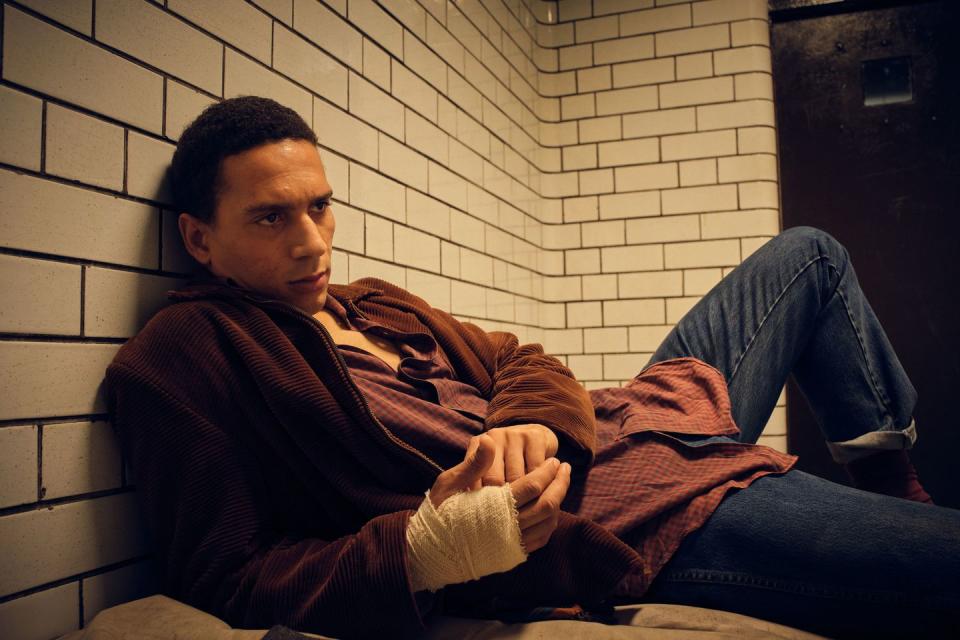
It's a small but important moment because of what it says but also what it fails to say: being Black and being Jewish are not mutually exclusive. Perhaps unintentionally, by trying to say something important about race, Ridley Road steps further into the murky debate over "Jewface".
For playing Soly, Marsan received his fair share of abuse on Twitter, and rightly used his platform to state the obvious: "This is relentless, all I did was play a Jew, I dread to think what would've happened if I was actually Jewish."
He added: "I was using my non-Jewishness to highlight the fact that this is ridiculous. Sometimes if a Jewish actor or writer or artist highlights it, it is diluted because people kind of expect it.
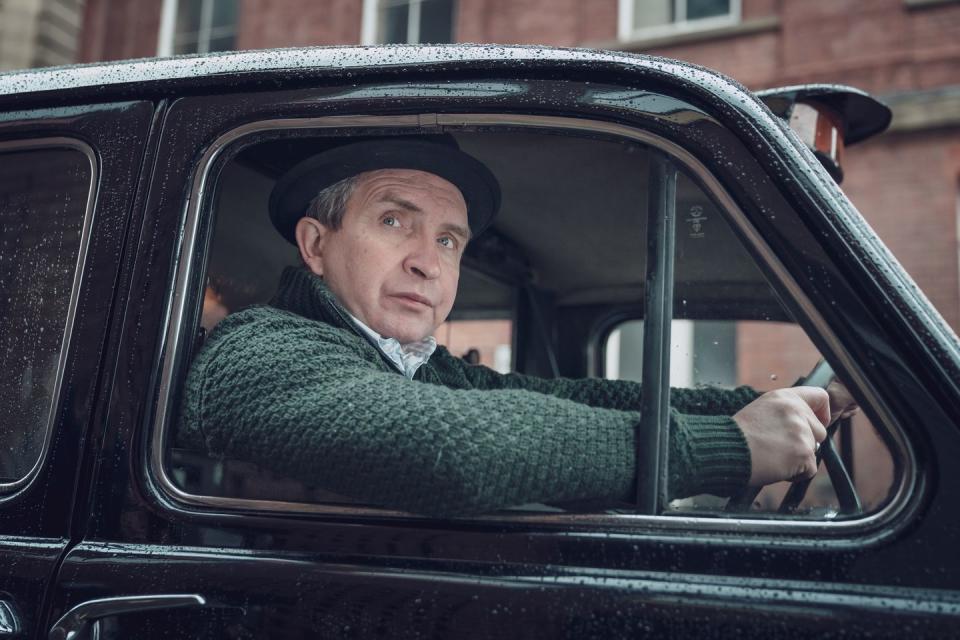
"There are people who are really suffering antisemitic abuse, and I'm not suffering that because I played a Jewish character. Tomorrow I play another character, so I can leave this behind. But there are people out there who can’t leave it behind." (via The Times.)
Because being Jewish means different things to different people, the barometer for what level of authenticity is "necessary" to portray a Jewish character is going to be different to everyone. In addition, authenticity comes from more than just the actor – the writer and director are just as key to developing a well-rounded character.
It's not a black and white answer, but how can it be? We Jewish folks constantly question and reexamine what it means to be Jewish, how we fit into a gentile-dominated world where our acceptance is predicated on our 'passing' and on assimilation, which is part of the function of white supremacy.
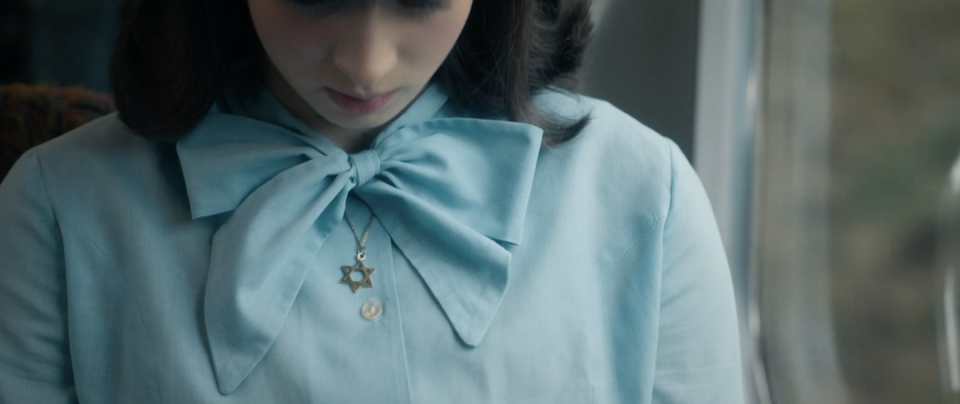
Add into the mix gender, race, socio-economics, religion and the question of identity and self-determination is even murkier. Where in the list of multi-hyphens does my ethnic Jewishness fit? On any given day when the kaleidoscope shifts, how do I see myself – how does the world see me?
The argument, then, around "Jewface" is reductive because it relies on a term that flattens and whitens what it means to be Jewish, denying the rich complexity that makes us a wonderful people. Casting Jewish actors to play Jews may be important to some, but a blanket benchmark for what that looks like is futile.
Instead, let us argue for a more diverse roster of Jewish characters on our screens: Mizrahi, Sephardic and Asian Jews. Jews who speak Ladino, Yiddish and Hebrew. Jews who don't believe in God, and Jews who convert. Then we will be able to dismantle the idea that one has to look a certain way to be a Jew.
Ridley Road is available to stream now on BBC iPlayer.
You Might Also Like

